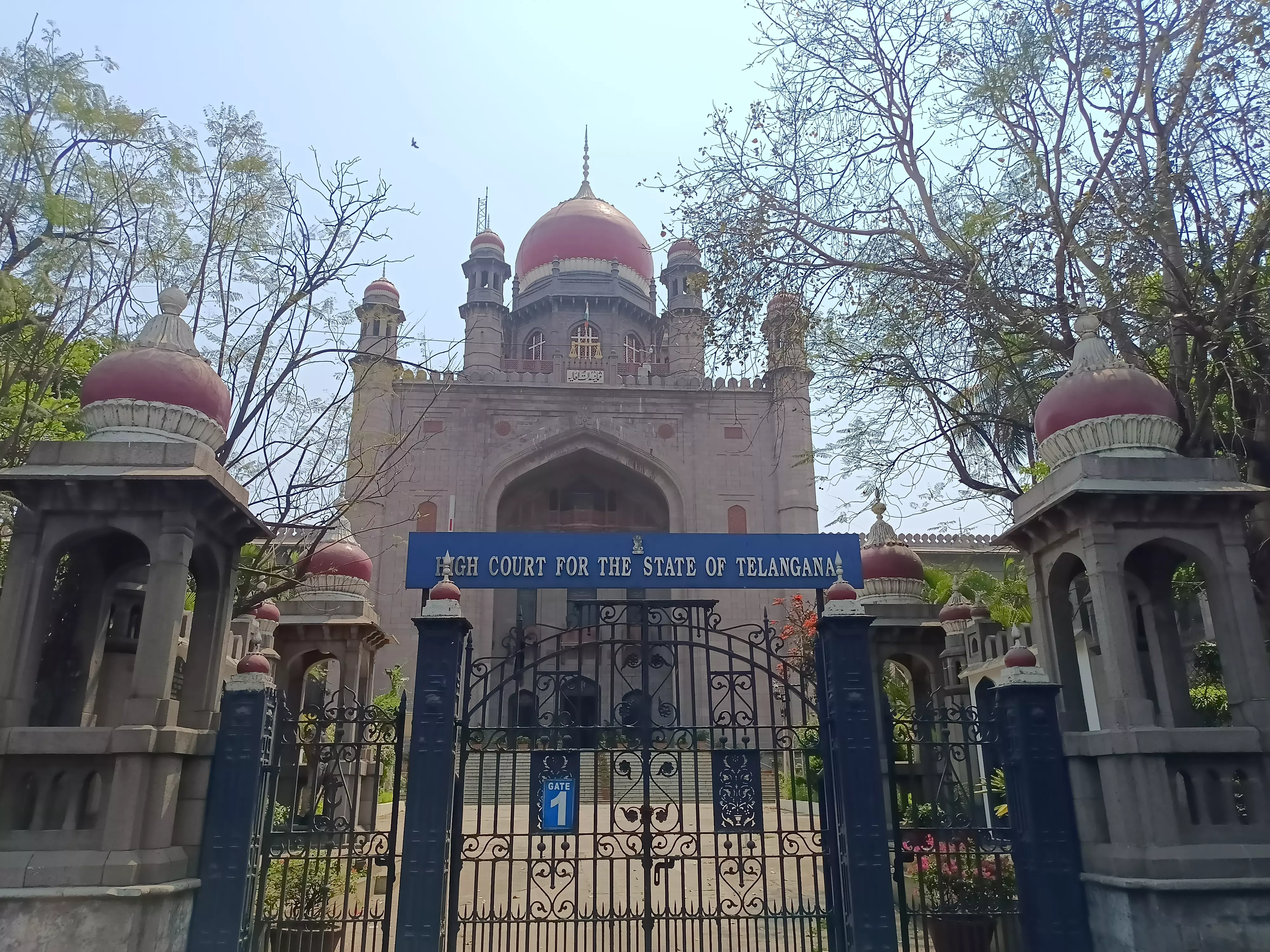Telangana HC rules 185 acres in Sultanpally not jagir land

Telangana High Court
Hyderabad: A two-judge of the Telangana High Court refused to interfere with the order of a single judge who set aside a government memo issued in 2005 relating to land in Sultanpally of Shamshabad mandal in Rangareddy district.
V. Tulsi-ram and five others said they had purchased about 185 acres in 1982 and received pattadar passbooks. The government then claimed that it was jagir land. This was challenged before the High Court in 1993. The court left it open to the government to approach the civil court to establish its title as claimant.
The mandal revenue officer (MRO) moved the commissioner and director of settlement to list the land as jagir property but was unsuccessful. The joint collector in 2005 reopened the issue under the Land Revenue Act and Rights in Lands and Pattadar Passbook Act.
The landowner again knocked on the doors of the High Court and the matter is under appeal. The government contended that “there is no material on record to show that the subject land is a private patta land.” It said that in the earlier round of litigation, the landowners vide order issued on May 10, 2005, were granted liberty to establish their title and possession but they did not avail of the remedy.
It said the state government had power under Section 166-B of the Land Revenue Act to correct the entries made in the revenue records. The government also said: “It is contended that in law, a presumption of title is in favour of the State and the landowners have to establish their title before an appropriate forum.”
A bench comprising Chief Justice Alok Aradhe and Justice N.V. Shravan Kumar agreed with the view of the single judge that the power to initiate a proceeding has to be exercised within a reasonable time. The single judge had found that the initiation of proceedings by issuing a memo on June 21, 1993, was incompetent, without jurisdiction and arbitrary.
It was held that the assumption of the government that the land was jagir property and vested with it was ex-facie misconceived. Chief Justice Aradhe said that the government pleader was unable to refer to any regulation or rule to indicate that the government had the power to decide the question of whether or not the land was jagir or patta.
The bench held that it was not permissible for the government to determine the rights of the parties. The bench accordingly declared invocation of powers under Section 166-B of the Land Revenue Act and under Section 9 of the Pattadar Pass Books Act was de hors the provisions of the Acts and the same was not only in contravention of the decision of the single judge and division bench of the in the previous round of litigation but was per se without jurisdiction.
12 years’ time for property recovery
Justice K Sarath declared that the suit for recovery of possession of property based on title can be filed at any time within 12 years, and the period of limitation was not 3 years.
The judge accordingly dismissed a revision petition filed by a defendant in a suit. P. Krishna, along with Grand Ville Realtors Pvt Limited, filed a civil suit on the file of the Principal Senior Civil Judge, Ibrahimpatnam, for declaration of title and for recovery of possession of suit property.
The first plaintiff is the sister of the defendant. In a case of disputes between siblings, the sister-plaintiff, P. Swarupa, filed a petition before the civil court contending that the plaint was barred by limitation. The civil court dismissed the application.
Challenging the order, the defendant filed the present revision which too was dismissed. The plaintiff contended that he had paid the total consideration and the defendant had failed to act in a bonafide manner. The judge said that the plaintiff learned of the fraud when he came to India.
Referring to the law, the judge said that it was governed by Article 65 of the Limitation Act. Justice Sarath said the fate of the suit must await a full-fledged trial. He upheld the order of the civil court and dismissed the revision ruling that the suit could be dismissed on the ground that it was barred by limitation.
( Source : Deccan Chronicle )
Next Story

